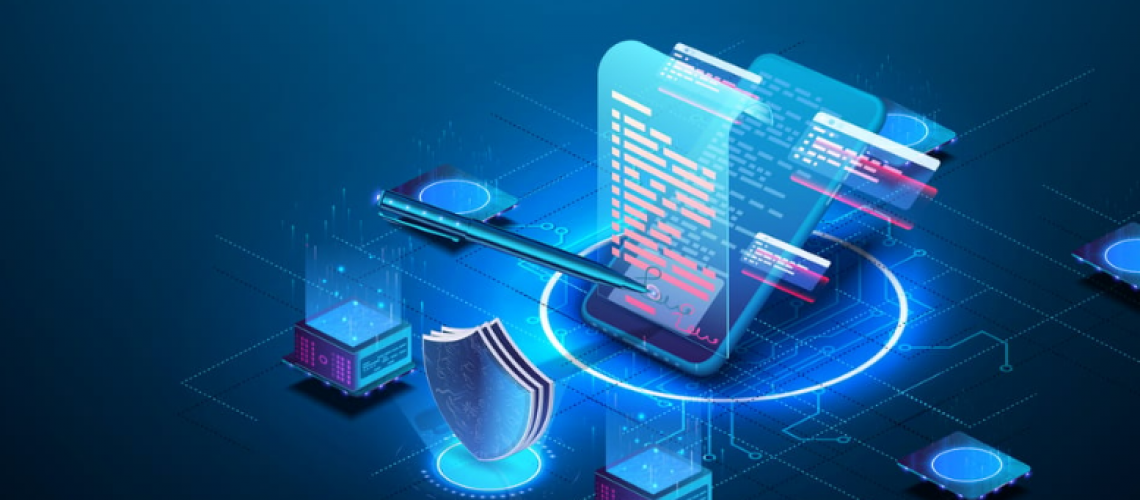Smart contracts represent an exciting application of blockchain technology, one of the top legal technology trends in 2021. By adding automated contract negotiation to an existing blockchain contract management solution, a task that may have taken 10 days to complete can be done in minutes. Smart contracts are self-executing, self-executing programs stored on a digital ledger, or blockchain, that automates a series of actions as predetermined conditions are met. Many legal departments are beginning to rely on cost-effective digital tools that enable blockchain contract management that can be implemented internally.
How Blockchain Contract Management Works
A contract blockchain includes conditional “if/when…then…” commands executed by a computer network upon verification of pre-set stipulations. To establish the terms, the parties must determine what rules will govern the various transactions, explore all possible exceptions, negotiate mutually favorable terms, and define a framework for resolving disputes. Blockchain is the ideal environment for contract provision, as all data stored is immutable and can never be lost, modified or deleted. Transactions that arise from smart contracts are fully transparent and traceable.
Blockchain Example
Imagine a shipment of goods from China arriving at a port in New York. Traditionally, the merchant inspected the goods and cleared them through customs. The merchant would then wait for a broker to handle the necessary paperwork, pay the required duties, and take physical control of the goods after paying the seller. The merchant would then transfer the goods to the carrier for distribution. All of this would normally take around 10 business days, as long as there are no deviations from the purchase agreement.
Using a blockchain-powered smart contract, the merchant scans the barcodes on the pallets when the ship docks. Data uploaded to the blockchain triggers automatic submission of customs declarations and tax payments. The transfer of ownership from the seller to the buyer is then activated, as well as all payments between the buyer, the seller and the carrier. If all conditions are met, this process can be completed in just a few minutes.
Industries Affected by Smart Contracts
The logistics industry is just one of many potential applications where artificial intelligence (AI) can save companies billions of dollars and countless hours while increasing trust and transparency. with the clients. Smart contracts are relevant in areas including the following:
Digital financial assets: banking and credit, transfer of ownership, liquidation
Supply chain management: confirmation of who is responsible for goods over time
Insurance: simplifying claims and compensation processes
Mortgage loans: streamlining creditworthiness and closing procedures
Healthcare: streamlining complex claims and payment processes, data linking
In business and technology, blockchain contract management is used to negotiate and execute Agreements Confidentiality Agreements, License Agreements, Master Service Agreements, as well as Merger and Acquisition Agreements.
What Provisions can be Automated in a Blockchain Contract?
A number of automated processes can be triggered in a blockchain contract, including:
- Requests for approvals
- Digital
- Payments
- Interest calculations
- Imposition of penalties
- Storage of information
- Disbursement of assets
Optimization of the Negotiation Process for Managing Contracts Blockchain with Artificial Intelligence
By automating the process of reviewing and negotiating contracts with the help of AI, legal departments can streamline the process that establishes the immutable framework for blockchain contract management.
An AI-powered contract trading platform can automate the contract review and negotiation process for a wide variety of deals. After training the AI, legal staff simply upload new contracts to the platform for review. Contracts are returned fully edited, redlined, and ready for approval.
Leveraging these technologies together can enable cutting-edge legal departments to exceed your company’s daily expectations for contract management efficiency and accuracy.














